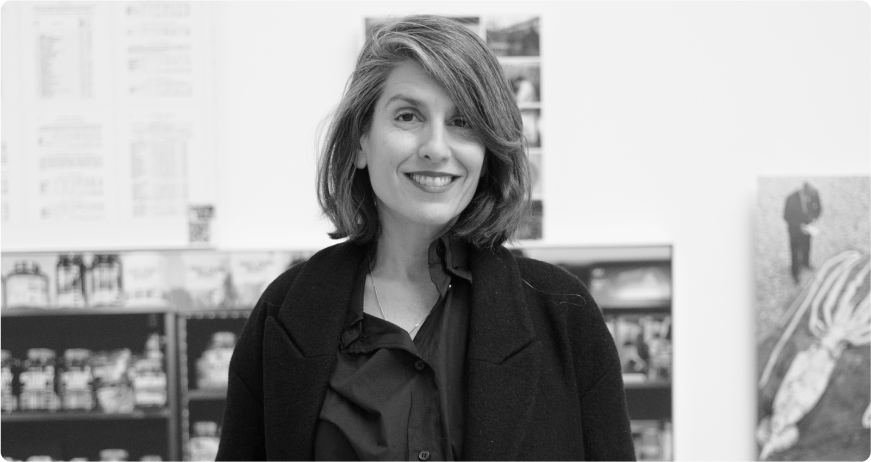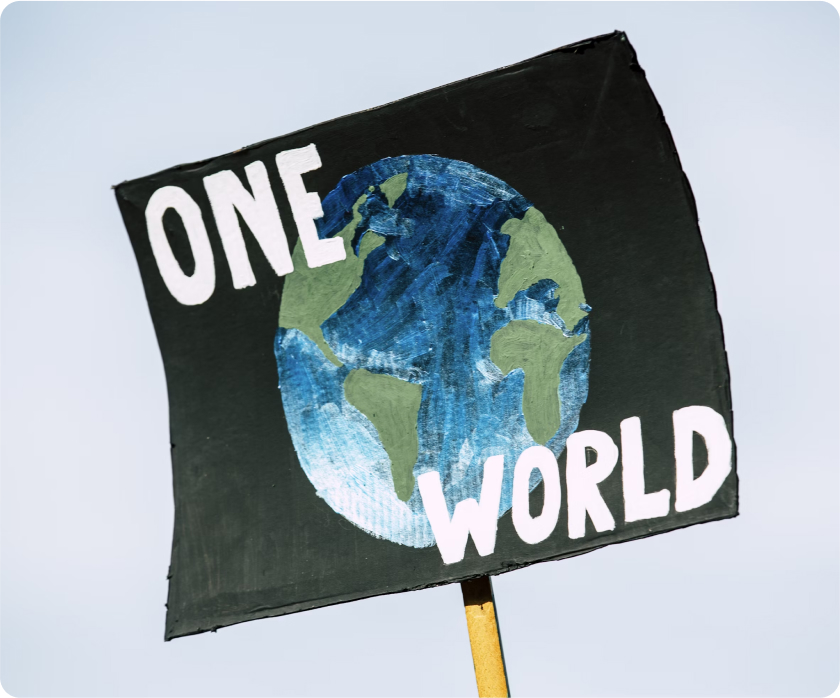
green
Spain
Interview with Miriam Zaitegui-Pérez: “Not only can we harness the wind and the sun more; we have to harness them better”
The ecological transition, along with the promotion of the circular economy and the creation of new narratives about the environmental crisis are pivotal elements when discussing the future sustainability of our planet. Miriam Zaitegui-Pérez, director of the European Climate Foundation’s program in Spain, advocates for an ecological transition that is equitable and addresses social and territorial considerations.
Interview
By Esmeralda R. Vaquero
14 Apr 2024
What is the role of the general public in the face of climate change?
We are currently experiencing a period of significant environmental and social crisis with the IPCC’s predictions happening sooner than expected. It is impossible to implement effective policies in this context without involving the public. In addition to drafting agreements and public policies with and by citizens, it is essential to resolve the conflict between activism and public institutions, which is not entirely real. Social movements, civil society, and NGOs are indispensable democratic agents and the greatest political achievements are made when public institutions listen to them. There are numerous examples of public policy being designed with people in mind, and they have proven to be effective. Adapting to climate change is not only a climate issue, it is also a social one. The more robust the social infrastructure, the greater the ability to adapt. This is also an opportunity to legitimize public policy, by connecting citizens’ initiatives with institutions and businesses. In 2019, the Pew Research Center concluded that distrust of the democratic system was common worldwide. Therefore, it is essential to facilitate open governance where citizens can act as what Elinor Ostrom referred to as “public entrepreneurs,” both outside and within the government. Climate assemblies or other initiatives such as the popular legislative initiative (PLI) to grant legal personhood to the Mar Menor [a salty lagoon, in the southeast of the autonomous community of Murcia (Spain), separated from the Mediterranean Sea by La Manga, a sandbar 22 kilometers], demonstrate the valuable role that the population can play in public policy.
The richest 1% of the world’s population generates more greenhouse gas emissions than the poorest 66%. What can we do to get that multimillionaire minority to take responsibility?
There is a tendency for that 1% to take responsibility for funding the green transition and this is not a coincidence. In 2006, the Stern report already advocated for this investment stating that: “The benefits of strong, early action on climate change will far outweigh the costs.” In other words, adopting climate measures, in the medium and long term, is a catalyst for economic growth in all countries, including the poorest ones. A current example is drought and its socio-economic consequences. However, we can find examples in almost any area. Climate change must be treated as an externality that contributes to funding the transition. And the 1% knows this. In Davos, an initiative led by multimillionaires from 17 countries was launched, called “Proud to Pay More”. It urges the political class to raise taxes on large fortunes to transform “unproductive private wealth” into a democratic investment for the future. They are aware that growing inequality and climate change are contributing to global instability. The energy transition requires financing and money is flowing into it because it is a significant investment opportunity. A fair and green tax system is key to this process. But there is an obstacle on the way: the big fossil fuel companies, which are primarily responsible for this crisis, and must urgently carry out the most significant energy transition of our productive system. In this regard, COP28, has sent a strong (though insufficient) message to investors: “to eliminate inefficient subsidies for fossil fuels that do not address energy poverty or fair transitions as soon as possible.”

"Adapting to climate change is not only an environmental issue, but also a social one"
While there seems to be some consensus on the need to implement measures to mitigate climate change, there are still some reservations about the economic strategies. What benefits can a green economy that moves away from the “produce-use-dispose” model bring?
The green economy has the potential to transform fossil fuel-based jobs and create new economic sectors, which will require a shift in priorities in certain areas. For example, the automotive sector will see a growth in battery production and maintenance while the construction sector presents a significant opportunity for energy retrofitting. These economic activities generate profits, create jobs and significantly reduce CO2 emissions. To do this, it is necessary to provide training and support to workers to ensure a fair transition and the replacement of current jobs (in equal or better conditions). At the same time, a green economy will prioritize the provision of services over the production of materials to transform a linear economy into a more circular one. The emphasis on efficiency and circularity not only reduces the demand for raw materials but also enhances security within the value chain and promotes greater energy and material independence from third countries. Green funding will be needed to support this process. Collaboration between governments and the banking system will be paramount in this process.
How can organizations get involved in the ecological transition?
The green transition should be seen as an opportunity for the private sector. To achieve the decarbonization of the economy by 2050, it is necessary to develop an action plan that enables businesses to take advantage of the benefits of the transition to cleaner and cheaper energy in order to boost the productive sector. Furthermore, supporting renewable energy ensures energy supply and provides stability in production costs by reducing our reliance on third countries. This, in turn, will result in a more robust economy for citizens. Participating in the ecological transition means aligning with market trends, identifying untapped opportunities, and developing products and expertise before competitors. Those who prioritize transition-oriented strategies will emerge as the long-distance race winners, while those who cling to outdated production systems will be left behind. In this regard, it is also important to consider the role of trade unions. Climate change has an impact on all aspects of our society and as a result, it will also affect employment. In addition to this, it is also essential to promote green collective bargaining that guarantees protection and skills for workers in this transitional context.
"Adopting climate measures, in the medium and long term, is a catalyst for economic growth in all countries, including the poorest ones"

Can technology platforms contribute in any way to environmental conservation?
It is clear that they have the potential to contribute to the environmental protection. This can be achieved through the exchange of best practices, networking within the production system, citizen mobilization, the creation of prediction and warning systems for invasive species or weather events, the promotion of sustainable businesses, and so on. The possibilities are endless, but we need to be careful about how we use them and in what we call green technology. It is important to consider that technologies such as AI can facilitate many transition processes but they also require a lot of energy and natural resources. In the current political landscape, the battle of the narrative is a significant factor. Technology companies that control the main social networks play a key role in ensuring that it is based on verifiable evidence. The proliferation of fake news, both about climate change and how to address it, is complicating the debate. It is the responsibility of companies to limit and combat this. Another key factor is cultural change: much of what we do and say is shaped by the narratives that are present in mass-consumption products, such as TV shows. At present, climate change is absent from these narratives and when it does appear, it is often handled from the point of view of collapse, without offering alternatives. This immobilizes society and is counter-productive. Therefore, we need to envisage future scenarios that are not only possible, but also desirable.
On a practical level, what should companies do to replace fossil fuels with renewable energy sources?
In order to support the growth of renewables, there must be a commitment from businesses and large industrial processes to the electrification of the economy, with corresponding increase in energy efficiency. Currently, we require more precise electrification targets to ensure that the market is prepared to accommodate all the renewable energy that is produced. Despite this, there are certain economic activities that cannot be electrified because they require temperatures that cannot be attained through electricity or other forms of decarbonized energy such as concentrated solar thermal energy, geothermal energy, heat pumps or the residual biomass from the actual industry. In this context, green hydrogen plays a key role, as it should be used in non-electrified activities such as heavy transport, aviation, the metallurgical industry, marine fuel or the fertilizer industry.
"Technology platforms have the potential to contribute to environmental protection"
In those countries where the sun and the wind are abundant natural resources, how can we leverage them more effectively?
These countries can become a focal point for attracting industry and employment due to their potential for renewable energy production. Rural areas in particular have a significant opportunity to contribute to this transition. They have resources, space, and established activities (agriculture, livestock, forestry management…) that allow them to leverage the Green Deal as a catalyst for change toward a new economic and social model. The energy transition must be fair in both social and territorial terms. Therefore, it must be carried out in a way that addresses the specific needs for building a desirable future for rural areas (which will also be a desirable future for cities) with all relevant stakeholders. This means ensuring that all territorial, political, professional, activist and citizen visions are heard and ensuring that the benefits of the transition are shared. There are multiple examples of best practices, collected by various agents in civil society, where economic, social and environmental benefits are shared by citizens and businesses. To achieve this shared benefit, other projects are pioneering the implementation of dialogue methodologies to ensure that the transition is carried out fairly. Going back to your question, not only can the wind and sun be harnessed more; they need to be harnessed better.
*Miriam Zaitegui-Pérez is the Program Director in Spain of the European Climate Foundation (ECF). She has experience in different fields including development cooperation, which has equipped her with the skills to lead different projects in countries such as Cuba, Morocco and Colombia. Currently, her focus is on climate change policies.
Other posts that may interest you:

give
Morocco
Technological platforms for ordering food… and for saving lives when a disaster happens
The widespread use of mobile applications has shown their potential as key tools in natural or man-made humanitarian disasters, such as wars or climate emergencies.

give
Spain
Impact Fund: Projects that are making an impact
Impact Fund is a unique initiative in the industry where a small percentage of the profit from each order generated on Glovo is dedicated to financing Impact and Sustainability projects.